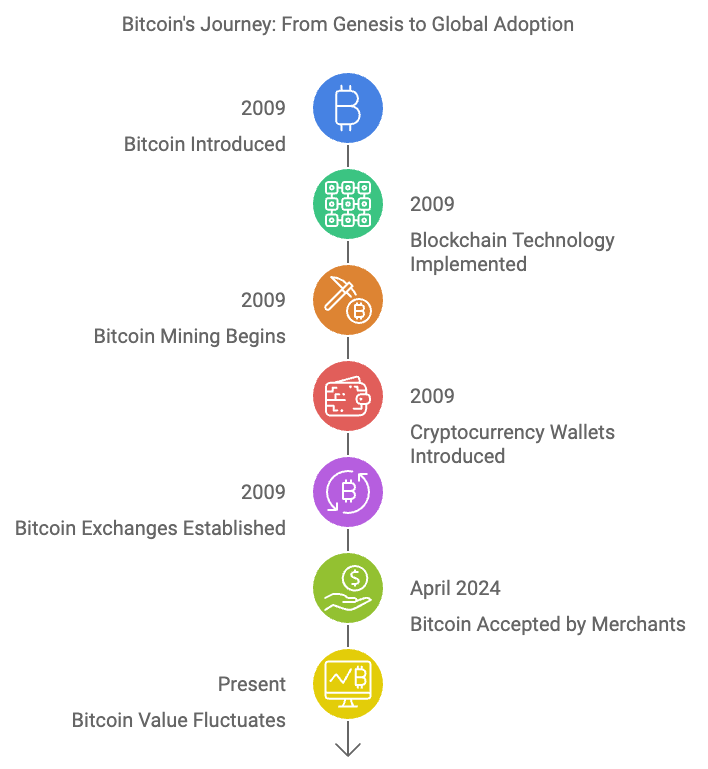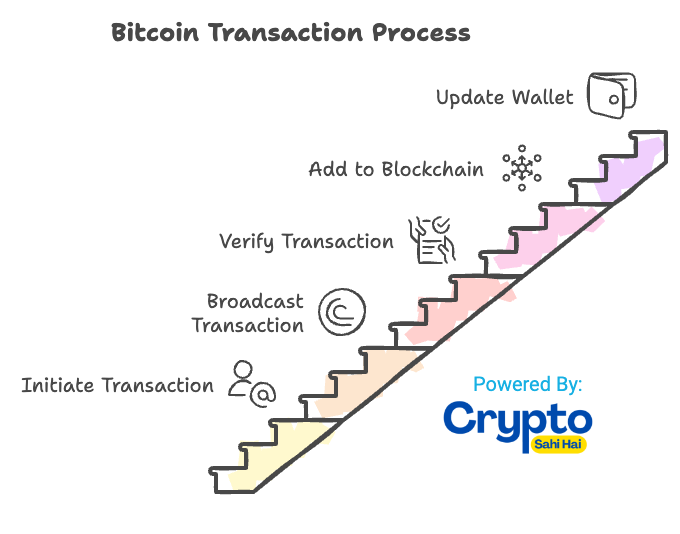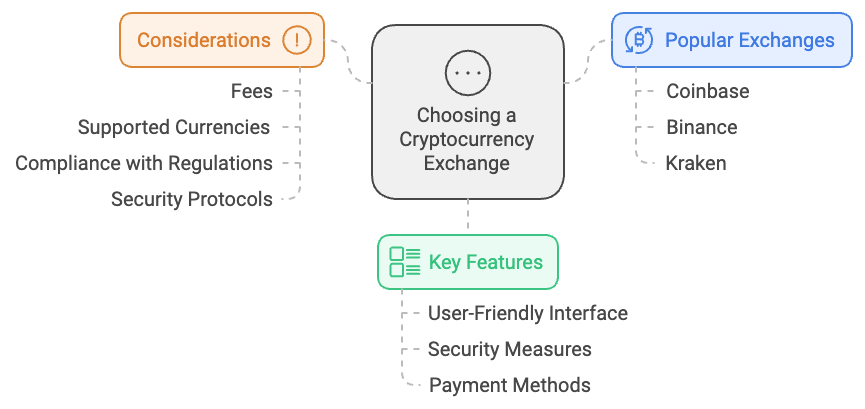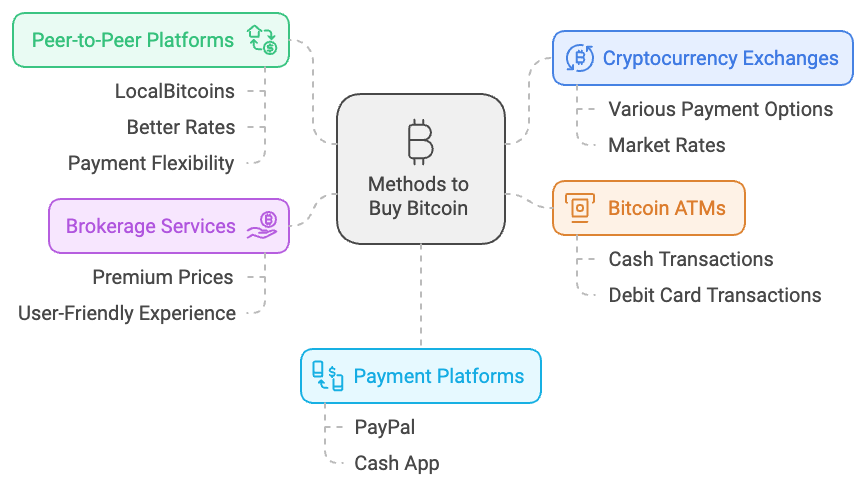Understanding Bitcoin: The Cryptocurrency Revolution
Bitcoin has emerged as a revolutionary digital asset since its inception in 2009 by the pseudonymous creator Satoshi Nakamoto. As the first cryptocurrency, Bitcoin has introduced a new paradigm of decentralized finance that allows users to send and receive payments without the need for intermediaries like banks. This article delves into the workings of Bitcoin, its mining process, investment potential, and its role in the modern economy.
Key Takeaways
- Bitcoin is a decentralized digital currency that allows direct transactions, eliminating the need for banks. Isn’t it intriguing how it bypasses financial gatekeepers?
- Secured by cryptography, Bitcoin acts as a digital fortress against counterfeiting and double-spending. Imagine it as a vault, carefully protecting your assets.
- In response to economic challenges like inflation, Bitcoin provides a secure alternative for value transfer in a global marketplace. Isn’t it like having a lifeboat amidst turbulent economic seas?
- As the pioneer of cryptocurrencies, Bitcoin has revolutionized finance, opening investment opportunities and challenging traditional banking norms. It’s like a new breeze in a stuffy room!
What is Bitcoin and How Does It Work?
Bitcoin is a revolutionary form of cryptocurrency that was introduced by an unknown person or group known as Satoshi Nakamoto in 2009. It operates on a decentralized network utilizing blockchain technology, a distributed ledger that records all bitcoin transactions. Each transaction is verified by miners who solve complex cryptographic puzzles to add blocks of data to the blockchain. Users store their bitcoins in a cryptocurrency wallet, which generates a unique bitcoin address for transactions. To send bitcoin or buy bitcoin, individuals can use bitcoin exchanges to convert fiat currencies into digital assets or sell bitcoin for cash.

As of April 2024, bitcoin continues to gain traction as a form of payment accepted by various merchants worldwide. Unlike traditional currencies controlled by a central bank, bitcoin operates on a peer-to-peer basis, allowing users to transact directly with one another. The bitcoin network enables secure and transparent bitcoin payments thanks to its underlying cryptography. Each bitcoin transaction is recorded in the ledger, making it immutable and traceable. Since bitcoin is treated as a virtual currency, its value fluctuates, and bitcoin investors closely monitor its worth in relation to other cryptocurrencies in the market. Understanding how bitcoin works is essential for anyone looking to engage in the bitcoin ecosystem.
What makes Bitcoin a decentralized digital currency?
Bitcoin is a decentralized digital currency that operates on a peer-to-peer electronic cash system. Unlike traditional currencies controlled by central banks, Bitcoin is governed by its users through a distributed ledger known as the blockchain. This means that no single entity has control over Bitcoin, allowing it to function independently of governmental or financial institutions. Each transaction is recorded on the blockchain, ensuring transparency and security. This decentralization is a fundamental characteristic of Bitcoin, making it resistant to censorship and fraud, thereby empowering users to transact freely without the oversight of third parties.

The decentralized nature of Bitcoin not only enhances its security but also fosters a sense of ownership among its users. By utilizing cryptography, Bitcoin ensures that transactions are secure and that users can maintain control over their funds through private keys. This level of autonomy distinguishes Bitcoin from traditional fiat currencies, where a central authority regulates supply and circulation. Furthermore, Bitcoin’s decentralized framework allows it to operate globally, enabling anyone with internet access to participate in the Bitcoin network, thus broadening the potential user base and enhancing its appeal as a global currency.
How does the Bitcoin network facilitate transactions?
The Bitcoin network facilitates transactions through a process known as mining, where miners validate and confirm transactions on the blockchain. Each transaction is grouped into a block, and miners compete to solve complex cryptographic puzzles to add these blocks to the blockchain. This process not only secures the network but also ensures that all transactions are recorded in a transparent manner. Once a block is added, the information it contains is immutable, meaning it cannot be altered or removed, which adds an additional layer of security to the Bitcoin network.

When a user wants to send Bitcoin, they initiate a transaction by using their Bitcoin wallet, which generates a unique Bitcoin address for the recipient. The transaction is then broadcasted to the Bitcoin network, where miners verify its authenticity. Once confirmed, the transaction is added to the blockchain, and the recipient’s wallet is updated to reflect the new balance. This entire process typically takes place within minutes, showcasing the efficiency of the Bitcoin network. Moreover, the use of a decentralized network eliminates the need for a central authority, allowing users to engage in transactions freely and privately.
What role does blockchain technology play in Bitcoin?
Blockchain technology is the backbone of Bitcoin, serving as a distributed ledger that records all transactions across a network of computers. Each block in the blockchain contains a list of recent transactions, a timestamp, and a reference to the previous block, creating a chronological chain of data. This structure not only enhances security but also ensures transparency, as every participant in the network has access to the same information. The use of cryptographic hashing makes it nearly impossible to alter any block without affecting all subsequent blocks, thus preserving the integrity of the Bitcoin blockchain.
The implementation of blockchain technology allows Bitcoin to operate without a central authority, which is a significant departure from traditional financial systems. This decentralized nature of the blockchain fosters trust among users, as they can independently verify transactions without relying on a third party. Additionally, blockchain technology enables the automation of various processes through smart contracts, which can execute predefined actions when certain conditions are met. Overall, blockchain is crucial to Bitcoin’s functionality, providing the security, transparency, and decentralization that define its value and utility.
How to Buy Bitcoin: A Step-by-Step Guide
What are the best cryptocurrency exchanges to buy Bitcoin?
When looking to buy Bitcoin, selecting a reputable cryptocurrency exchange is crucial. Some of the most popular exchanges include Coinbase, Binance, and Kraken. These platforms offer user-friendly interfaces, robust security measures, and a wide range of cryptocurrencies for trading. Additionally, they provide various payment methods, allowing users to buy Bitcoin using credit cards, bank transfers, or even PayPal. It’s essential to compare fees, supported currencies, and features before choosing an exchange to ensure it meets your needs and provides a secure environment for transactions.

Each cryptocurrency exchange operates differently, so it’s important to research and find one that aligns with your requirements. For instance, Coinbase is known for its simplicity, making it an excellent choice for beginners. On the other hand, Binance offers advanced trading features, catering to experienced investors. Ensure that the selected exchange complies with local regulations and implements strong security protocols, such as two-factor authentication and cold storage for cryptocurrency assets. This diligence will help protect your investment and enhance your overall buying experience.
How do I set up a Bitcoin wallet for secure transactions?
Setting Up a Bitcoin Wallet
Setting up a Bitcoin wallet is like choosing the perfect vault for your digital treasure. But how do you make sure your valuables remain secure?
Begin by selecting the right wallet type: software, hardware, or paper. Each option presents unique benefits and varying security levels.
- Choose your wallet type: Software wallets are ideal for daily transactions, hardware wallets provide excellent security, and paper wallets offer offline storage.
- Download or acquire your wallet from a reputable source to avoid scams.
- Improve security with strong passwords and allow two-factor authentication.
What are the different methods to buy Bitcoin?
There are several methods to buy Bitcoin, catering to different preferences and circumstances. One of the most common methods is through cryptocurrency exchanges, where users can buy Bitcoin using various payment options. Additionally, peer-to-peer platforms like LocalBitcoins allow individuals to buy Bitcoin directly from sellers. This method often bypasses the need for a central exchange and can provide better rates or payment flexibility. Furthermore, Bitcoin ATMs have emerged in various locations, enabling users to buy Bitcoin using cash or debit cards, offering a convenient and anonymous option.

Another method to consider is using brokerage services, where users can purchase Bitcoin through an online platform that acts as an intermediary. These services typically charge a premium over the market price but offer a straightforward and user-friendly experience. Additionally, some payment platforms like PayPal and Cash App have begun to allow users to buy Bitcoin directly within their apps, making it easier for individuals to enter the cryptocurrency market. Each method has its pros and cons, so it’s essential to evaluate your options and choose the one that best fits your needs, taking into account factors like fees, privacy, and convenience.
Understanding Bitcoin Mining: What You Need to Know
What is Bitcoin mining and how does it work?
Bitcoin mining is the process through which new bitcoins are created and transactions are verified on the Bitcoin network. Miners use powerful computers to solve complex mathematical problems, a process known as proof of work. When a miner successfully solves a puzzle, they add a new block of transactions to the blockchain and are rewarded with newly minted bitcoins. This not only incentivizes miners to maintain the network’s security but also regulates the introduction of new bitcoins into circulation, ensuring that the total supply remains capped at 21 million bitcoins.
The mining process is competitive and requires significant computational power, leading to the establishment of mining pools where multiple miners collaborate to increase their chances of earning rewards. These pools combine their resources and share the rewards proportionally based on the computing power contributed. However, as the Bitcoin network grows, the difficulty of mining increases, necessitating specialized hardware, such as ASIC miners, to remain competitive. This evolution has transformed Bitcoin mining into a complex industry, attracting both individual miners and large mining farms seeking to capitalize on the lucrative nature of this digital currency.
How do miners validate Bitcoin transactions?
Miners play a crucial role in validating Bitcoin transactions by verifying each transaction’s authenticity before adding it to the blockchain. When a user initiates a Bitcoin transaction, it is broadcasted to the network and enters a pool of unconfirmed transactions, often referred to as the mempool. Miners select transactions from this pool based on transaction fees, prioritizing those with higher fees to maximize their profits. Once a miner chooses a set of transactions, they compile them into a candidate block and begin the process of solving the cryptographic puzzle required to add the block to the blockchain.
As miners work to validate transactions, they utilize their computational power to perform numerous hash calculations, searching for a hash that meets the network’s difficulty target. Once a miner finds the correct hash, they broadcast the newly mined block to the network for verification. Other miners and nodes verify the block’s validity by checking the included transactions against the existing blockchain. If the block is deemed valid, it is added to the blockchain, and the transactions are confirmed. This decentralized validation process ensures the integrity and trustworthiness of the Bitcoin network while preventing double-spending and other fraudulent activities.
What equipment is needed to mine Bitcoin?
To mine Bitcoin, specialized equipment is essential for efficiently solving the complex mathematical problems required in the proof of work process. Initially, miners used standard CPUs to mine bitcoins, but as the network grew, the difficulty of mining increased, necessitating more powerful hardware. Today, the most common mining equipment includes ASIC (Application-Specific Integrated Circuit) miners, which are specifically designed for Bitcoin mining and offer significant computational power compared to traditional hardware. Popular models, such as the Antminer S19 and Whatsminer M30S, are known for their efficiency and high hash rates.

In addition to mining hardware, miners also require a stable internet connection and a reliable power supply, as mining can be energy-intensive. Many miners strategically locate their operations near inexpensive electricity sources to reduce operational costs. Beyond hardware, miners need to install Bitcoin mining software, which connects their devices to the Bitcoin network and manages the mining process. Lastly, joining mining pools can also be beneficial, as it allows miners to combine their resources and increase their chances of earning rewards. By investing in the right equipment and resources, miners can effectively participate in the Bitcoin mining ecosystem.
The Investment Potential of Bitcoin
Is investing in Bitcoin a smart financial decision?
Investing in Bitcoin has garnered significant attention in recent years, particularly as its price has experienced dramatic increases, leading many to view it as a potentially lucrative investment. Bitcoin is often regarded as a digital gold due to its limited supply and deflationary nature. As more individuals and institutions recognize Bitcoin’s value as a store of wealth and hedge against inflation, the demand for bitcoins has surged. However, potential investors should also be aware of the volatility associated with Bitcoin, as its price can fluctuate dramatically within short periods, presenting both opportunities and risks.
Before investing in Bitcoin, it’s crucial to conduct thorough research and consider your financial situation, risk tolerance, and investment goals. While Bitcoin has shown impressive growth since its creation, its future price remains uncertain, influenced by various factors such as regulatory developments, technological advancements, and market sentiment. Diversifying your investment portfolio and not allocating more than you can afford to lose in Bitcoin can help mitigate risks associated with this cryptocurrency. Ultimately, as the cryptocurrency market continues to evolve, Bitcoin’s potential as a smart financial decision will depend on individual circumstances and market dynamics.
What factors influence the Bitcoin price?
The price of Bitcoin is influenced by a multitude of factors that can cause fluctuations in its value. One of the primary determinants is supply and demand dynamics; as more people seek to buy bitcoin, the price tends to rise. Conversely, when selling pressure increases, the price may decline. Additionally, news events, technological advancements, and regulatory changes can significantly impact market sentiment and investor behavior, leading to price volatility. For example, announcements regarding institutional adoption or government regulations often lead to rapid price movements.
Market liquidity also plays a crucial role in determining Bitcoin’s price. Higher liquidity allows for smoother transactions and less price slippage, making it easier for large trades to occur without significantly impacting the market. Furthermore, the influence of macroeconomic factors, such as inflation rates and currency fluctuations, can affect investor confidence in Bitcoin as a store of value. Additionally, the overall sentiment in the cryptocurrency market, as well as the performance of other cryptocurrencies, can indirectly impact Bitcoin’s price. Understanding these factors can help investors make informed decisions regarding their Bitcoin investments and navigate the volatile landscape of cryptocurrencies.
How to hold Bitcoin as a long-term investment?
To hold Bitcoin as a long-term investment, it’s essential to choose a secure method of storage that protects your assets from theft or loss. Many investors opt for hardware wallets, which provide a secure environment for storing private keys offline. This method minimizes the risk of hacks commonly associated with online wallets or exchanges. Regularly backing up your wallet and keeping recovery phrases in a safe location are also crucial steps in safeguarding your investment. Additionally, consider using multi-signature wallets, which require multiple keys to authorize transactions, adding an extra layer of security.
Another important aspect of holding Bitcoin long-term is to stay informed about market trends and developments within the cryptocurrency space. While it’s essential to remain focused on your investment strategy, being aware of changes in technology, regulation, and market sentiment can help you make informed decisions regarding your holdings. Additionally, avoid the temptation to react impulsively to short-term market fluctuations; instead, adopt a long-term perspective and focus on the fundamentals of Bitcoin as a digital asset. By implementing these strategies and maintaining a disciplined approach, you can effectively hold Bitcoin as a long-term investment and potentially benefit from its appreciation over time.
Common Uses of Bitcoin in Today’s Economy
How can businesses accept Bitcoin as a payment method?
Businesses can accept Bitcoin as a payment method by integrating cryptocurrency payment processors into their existing payment systems. Platforms such as BitPay and CoinGate facilitate Bitcoin transactions, allowing merchants to receive payments in Bitcoin while converting them to local currency or holding them as digital assets. This process allows businesses to tap into the growing number of consumers who prefer using Bitcoin as a medium of exchange, particularly in e-commerce. Additionally, accepting Bitcoin can enhance a business’s reputation as a forward-thinking, innovative company.
To begin accepting Bitcoin, businesses must first create a Bitcoin wallet to receive payments. Once the wallet is set up, they can integrate payment processing solutions that support Bitcoin transactions. These solutions often provide easy-to-use APIs and plugins for popular e-commerce platforms, making it simple for businesses to get started. Furthermore, educating customers about the benefits of using Bitcoin can promote its adoption and encourage purchases. As more businesses accept Bitcoin, it could lead to increased mainstream adoption and further solidify Bitcoin’s role in the economy.
What are the advantages of using Bitcoin for transactions?
Using Bitcoin for transactions comes with several advantages that appeal to both consumers and businesses. One major advantage is lower transaction fees compared to traditional payment methods, especially for international transfers. Traditional banks often charge high fees for cross-border transactions, while Bitcoin allows for near-instant transactions with minimal fees, making it an attractive option for global commerce. Additionally, Bitcoin transactions are irreversible, which reduces the risk of chargebacks for merchants, providing them with greater financial security.
Another significant advantage of using Bitcoin is the level of privacy it offers. While transactions are recorded on the public blockchain, users can maintain a degree of anonymity by not linking their Bitcoin addresses to personal information. This feature appeals to individuals who value their privacy in financial transactions. Furthermore, the decentralized nature of Bitcoin means that it is not subject to government control or interference, providing users with a sense of autonomy over their funds. These advantages make Bitcoin an increasingly popular choice for transactions in today’s economy, as more people seek alternatives to traditional payment methods.
What are the risks associated with using Bitcoin?
While Bitcoin offers numerous benefits, there are also risks associated with its use that individuals and businesses should consider. One of the primary risks is the volatility of Bitcoin’s price, which can lead to significant fluctuations in the value of funds held in Bitcoin wallets. This volatility may deter some users from adopting Bitcoin as a reliable medium of exchange, as the value of their holdings could decrease dramatically overnight. Additionally, the lack of regulation in the cryptocurrency space can expose users to fraudulent schemes and scams, further complicating the adoption of Bitcoin.
Security is another critical concern, as users must take precautions to protect their Bitcoin wallets from hacking and theft. If a user’s private key is compromised, they risk losing their funds permanently, as Bitcoin transactions are irreversible. Furthermore, the legal and regulatory environment surrounding Bitcoin is still evolving, which can create uncertainty for businesses considering accepting Bitcoin as a payment method. Staying informed about potential risks and implementing security measures can help mitigate these challenges, allowing users to navigate the world of Bitcoin more safely.
The Future of Bitcoin and Cryptocurrency
What developments can we expect in Bitcoin technology by 2024?
As we approach 2024, several developments in Bitcoin technology are anticipated that could enhance its functionality and usability. One promising area is the continued evolution of the Lightning Network, a second-layer solution designed to facilitate faster and cheaper transactions. By enabling off-chain transactions, the Lightning Network could significantly reduce congestion on the Bitcoin blockchain, making it more efficient for everyday use. This advancement may encourage greater adoption of Bitcoin as a medium of exchange, positioning it for broader acceptance in retail and e-commerce.
Additionally, improvements in wallet technology and user interfaces are expected, making it easier for individuals to create a Bitcoin wallet and manage their digital assets. Enhanced security features, such as biometric authentication and multi-signature options, could also bolster user confidence in holding and transacting with Bitcoin. Furthermore, regulatory clarity surrounding Bitcoin and cryptocurrencies is likely to evolve, providing a more stable environment for investors and businesses alike. These developments could pave the way for Bitcoin to solidify its position as a leading cryptocurrency in the coming years.
Frequently Asked Questions
Q: What is Bitcoin and how does it work?
A: Bitcoin is a decentralized digital currency that operates on a peer-to-peer electronic cash system. It allows users to send and receive bitcoins without the need for a central authority, utilizing the technology of the bitcoin blockchain to ensure secure transactions.
Q: How were bitcoins created?
A: Bitcoins were created in 2009 when the first bitcoin was mined by an anonymous person or group known as Satoshi Nakamoto. The process of bitcoin mining involves solving complex mathematical problems to validate transactions and add them to the blockchain, rewarding miners with newly created bitcoins.
Q: What is the purpose of Bitcoin?
A: The primary purpose of Bitcoin is to serve as a medium of exchange that allows for peer-to-peer transactions without intermediaries. It aims to provide a decentralized alternative to traditional currencies, enabling users to transact directly with one another.
Q: How can I use Bitcoin?
A: You can use Bitcoin by creating a bitcoin wallet to store your bitcoins. Once you have a wallet, you can buy, sell, or hold bitcoins, as well as use them for transactions at merchants that accept bitcoin as a form of payment.
Q: How do I mine one Bitcoin?
A: To mine one bitcoin, you need to participate in the bitcoin mining process, which involves using specialized hardware to solve cryptographic puzzles. The difficulty of mining increases over time, and miners receive bitcoin rewards for their efforts based on the proof of work system.
Q: What are bitcoin exchanges and how do they work?
A: Bitcoin exchanges are platforms that allow users to buy, sell, or trade bitcoins for other cryptocurrencies or fiat currencies. Users can create accounts, deposit funds, and execute trades based on the current bitcoin price.
Q: How do I sell Bitcoin?
A: To sell Bitcoin, you can use a bitcoin exchange where you can trade your bitcoins for fiat currency or other cryptocurrencies. You will need to have a bitcoin wallet to transfer your bitcoins to the exchange and complete the sale.
Q: What is the significance of Bitcoin’s price?
A: Bitcoin’s price is significant as it reflects the market demand and supply for bitcoins. The price can be highly volatile, influenced by various factors such as market trends, adoption rates, and regulatory news, making it a popular asset for investment.
Q: What is a cryptocurrency wallet?
A: A cryptocurrency wallet, or bitcoin wallet, is a digital tool that allows users to store, send, and receive bitcoins. Wallets can be software-based, hardware-based, or even paper-based, providing different levels of security and ease of use.
Q: How is Bitcoin regulated?
A: Regulating Bitcoin varies by country, with some governments embracing it while others impose restrictions. In many countries, regulations focus on anti-money laundering practices and ensuring consumer protection without hindering the innovation behind Bitcoin.

